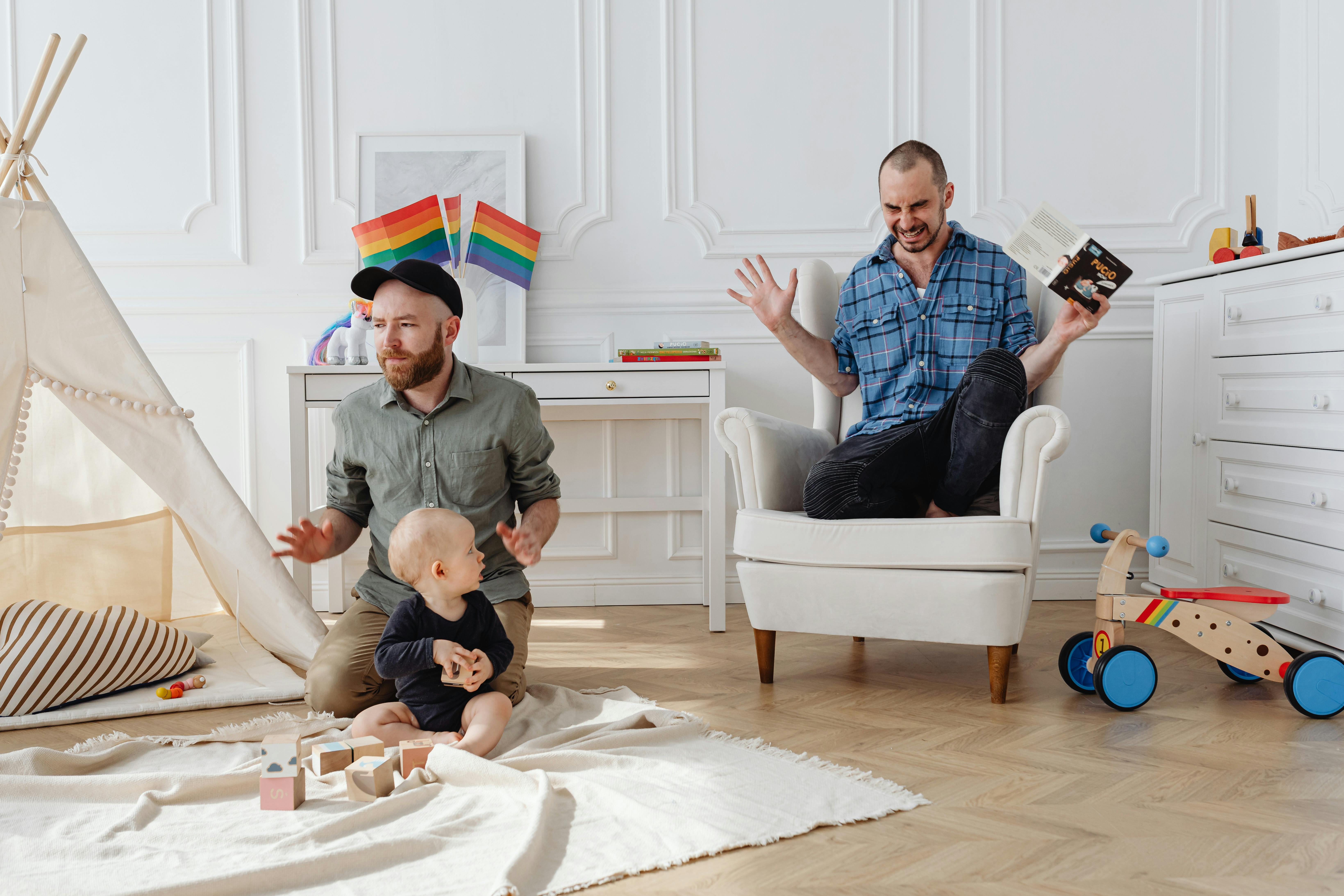Allergic reactions to baby wipes are not uncommon, and can range from mild to severe. In some cases, the reaction can even be life-threatening. It is important to be aware of the signs and symptoms of an allergic reaction to baby wipes, as well as how to treat them appropriately. This article will provide an overview of what to look out for when it comes to allergies related to baby wipes, as well as advice on how best to treat them.An allergic reaction to baby wipes is typically caused by an ingredient known as methylisothiazolinone, which is a preservative found in many baby wipes. It may also be caused by fragrances or other preservatives used in the wipes. Some people may have a sensitivity to one or more of these ingredients, which can result in an allergic reaction. Symptoms of an allergic reaction to baby wipes can include redness, itching, and swelling of the skin.
Signs and Symptoms of an Allergic Reaction to Baby Wipes
An allergic reaction to baby wipes can cause a variety of symptoms, ranging from mild skin irritation to a severe, life-threatening reaction. Common signs and symptoms of an allergic reaction to baby wipes include redness and itching of the skin, hives, swelling of the face, eyes, lips or tongue, difficulty breathing or swallowing, vomiting or diarrhea. If you experience any of these symptoms after using baby wipes on your child or yourself, seek medical attention immediately.
The most common cause of an allergic reaction to baby wipes is an ingredient contained in the wipes that your body does not recognize as safe. Common ingredients that can cause an allergic reaction include fragrances, preservatives such as parabens and methylisothiazolinone (MI), and additives like propylene glycol. If you are uncertain which ingredient is causing the allergy for you or your child, it is important to contact your doctor for further testing.
If you are concerned about allergies to baby wipes, look for products that are specifically labeled as hypoallergenic or free from certain allergens such as fragrance. It is also important to read the ingredients list carefully before buying any product. If you have already experienced an allergic reaction after using a baby wipe product once, avoid using it again in the future.
If you suspect that you or your child is having an allergic reaction to a baby wipe product, seek medical attention immediately. An allergist may be able to diagnose the source of the allergy and provide treatment options such as medications or immunotherapy shots. It is also important to avoid any further contact with the product that caused the reaction in order to prevent future reactions.
Diagnosing an Allergic Reaction to Baby Wipes
Allergies to baby wipes are not uncommon and can cause a range of uncomfortable symptoms. If you suspect your child is having an allergic reaction to baby wipes, it’s important to identify the cause as soon as possible so you can take the necessary steps to prevent further irritation.
The most common signs of a baby wipe allergy are redness, itching, and dryness in the affected area. Other signs may include hives, swelling, and rashes. If your child is experiencing any of these symptoms after using baby wipes, it’s important to take them to a doctor for diagnosis.
Your doctor will likely perform a skin test to determine if your child has an allergy to baby wipes or another substance. During this test, small amounts of different allergens will be placed on the skin and then monitored for any reactions. If any reactions occur, your doctor will be able to identify which allergen is causing the reaction and provide treatment accordingly.
In addition to skin testing, your doctor may also recommend food elimination tests or blood tests if they think that the allergies may be caused by certain foods or environmental factors.
Once the cause of the allergic reaction has been identified, your doctor will recommend steps that should be taken in order to reduce your child’s exposure to allergens. This may include avoiding certain foods or using hypoallergenic wipes instead of traditional baby wipes. In some cases, antihistamines may also be prescribed in order to reduce inflammation and discomfort associated with an allergic reaction.
It’s important that you take all necessary precautions when it comes to diagnosing an allergic reaction from baby wipes as untreated allergies can lead to serious complications such as asthma attacks or other respiratory issues. Taking action quickly can help ensure that your child is safe and healthy going forward.
Treating an Allergic Reaction to Baby Wipes
If you or your baby have experienced an allergic reaction after using baby wipes, it is important to take the appropriate steps to treat the reaction and prevent it from happening again. The first step is to identify which ingredients in the baby wipes are causing the reaction. Common allergens include fragrances, preservatives, propylene glycol, and formaldehyde. Once you have identified the allergen, it is important to stop using baby wipes that contain that ingredient and switch to hypoallergenic brands.
It is also important to take steps to soothe and treat any existing reactions. A cold compress can be applied directly to the affected area for relief from itching or burning sensations. If necessary, antihistamines can be taken orally or through a topical cream may be used to reduce inflammation and itching. If symptoms are severe or don’t respond to other treatments, visit a doctor for further medical advice.
Finally, it is important to take measures to prevent future reactions from occurring. Always read labels before purchasing baby wipes and avoid those that contain common allergens like fragrances, preservatives, propylene glycol, or formaldehyde. Also consider using natural alternatives such as water-based wipes that are free of irritants and chemicals that may trigger an allergic reaction. If you find a brand of baby wipes that works well for everyone in your family without triggering any reactions then stick with it!
Allergy Shots for Allergic Reactions to Baby Wipes
Allergic reactions to baby wipes can be quite uncomfortable and even dangerous in some cases. While some people may find relief from medications or other treatments, allergy shots may be the best option for those who suffer from severe allergic reactions. Allergy shots are a type of immunotherapy that involves introducing a small amount of allergen into the body over time, allowing it to become desensitized to the allergens that cause the reaction. This form of treatment is often used to treat allergies to pollen, dust mites, pet dander, and foods, but it can also be used in cases of allergic reactions to baby wipes.
The process of receiving allergy shots for an allergic reaction to baby wipes typically begins with an evaluation by an allergist. During this evaluation, a skin test and/or blood test will be performed in order to determine what allergens are causing the reaction. Once the allergens causing the reaction have been identified, the allergist will create a customized immunotherapy treatment plan based on these results. This plan usually includes weekly injections of small amounts of diluted allergen which will gradually increase over time.
The goal of this type of treatment is to desensitize the body so that it no longer reacts with symptoms when exposed to the allergen. This type of immunotherapy is generally considered safe and effective and has been shown to reduce or even eliminate allergic reactions in some people. However, it is important to note that allergy shots may not be suitable for everyone and should only be considered after discussing other options with an allergist.
Overall, allergy shots can provide relief from allergic reactions caused by baby wipes when other treatments have failed or are not suitable. However, it is important to remember that this form of treatment requires commitment and dedication as it can take several months (or even years) before significant results are seen. It is also important to follow instructions provided by an allergist carefully in order to ensure maximum benefit from allergy shots.

Over-the-Counter Medications for Allergic Reactions to Baby Wipes
If you or your baby have experienced an allergic reaction to baby wipes, it is important to seek medical advice as soon as possible. In the meantime, there are several over-the-counter medications that can help provide relief from the symptoms of the allergic reaction. These include antihistamines, which can help reduce inflammation and itching; corticosteroids, which can reduce swelling and inflammation; topical creams that provide soothing relief; and decongestants, which can help clear nasal passages.
It is important to read the labels of all over-the-counter medications carefully before use, as some may contain ingredients that could further aggravate an allergic reaction. If you are unsure about what type of medication is best for your situation, you should consult with a physician or pharmacist who can recommend an appropriate medication.
In addition to using over-the-counter medications to treat an allergic reaction to baby wipes, it is also important to consider other preventative measures. This includes using hypoallergenic wipes or those with fewer chemicals, avoiding contact with any potential allergens in the future, and washing hands thoroughly after changing diapers or wipes. Taking these steps can help minimize or prevent further allergic reactions in the future.
Home Remedies for Allergic Reactions To Baby Wipes
Allergic reactions to baby wipes can be uncomfortable and irritating, but there are some home remedies that can help soothe the skin and provide some relief. The first step is to identify the cause of the reaction, as this will determine the best course of action. If it is an allergic reaction to a specific ingredient in the wipes, then it is best to avoid that product in the future. If it is a general allergic reaction, then there are several home remedies that may be effective.
One home remedy is to use cold compresses on the affected area. Applying cold compresses can help reduce redness and swelling, as well as providing some relief from itching and discomfort. The compress should be applied for ten minutes at a time, several times a day until symptoms subside.
Another home remedy for allergic reactions to baby wipes is to apply an over-the-counter hydrocortisone cream. This cream helps reduce inflammation and itching caused by the reaction and should be applied several times a day until symptoms improve.
If necessary, an oral antihistamine may also be taken to help reduce symptoms such as itching or hives. These medications should only be taken as directed by your doctor or pharmacist, as they may interact with other medications or have side effects if taken in large doses.
Finally, for more severe cases of allergic reactions to baby wipes, it may be necessary to consult a doctor who can prescribe stronger medications such as corticosteroids or immunosuppressants that can help reduce inflammation and discomfort caused by the allergy.
Preventing Future Allergic Reactions To Baby Wipes
It is important to take steps to prevent future allergic reactions to baby wipes. The most common allergens found in baby wipes are fragrances, preservatives, and other chemicals. To reduce the chance of an allergic reaction, parents should use fragrance-free and preservative-free wipes. Additionally, they should look for wipes that are labeled “hypoallergenic” or “allergy-certified” as these are less likely to contain allergens.
Parents should also read the ingredient list on the package of baby wipes carefully before purchasing them. Common ingredients that can cause allergic reactions include parabens, formaldehyde, and sulfates. Parents should avoid products with these ingredients if their baby has a known sensitivity or allergy.
It is also important for parents to pay attention to their baby’s skin after using wipes. If their baby develops a rash or redness after using a particular brand of wipes, it is best to discontinue use and try another brand that does not contain the same ingredients. It is also important to keep an eye out for signs of a more serious allergic reaction such as difficulty breathing or swelling of the face or lips.
In addition to avoiding specific ingredients, parents can take steps to reduce the potential for an allergic reaction by making sure they properly clean and store their wipes when not in use. This includes keeping them away from sources of heat and direct sunlight as well as washing them regularly with mild soap and water before use.
Finally, it is important for parents to be aware that some babies may be more likely than others to develop an allergic reaction due to genetics or other factors such as environmental exposure or diet. If your baby has a known sensitivity or allergy, it is best to speak with your doctor before using any type of wipe on them. By taking these precautions, you can help ensure that your baby stays safe and healthy while avoiding any potential allergic reactions due to baby wipes.

Conclusion
Allergic reactions to baby wipes are not uncommon, but fortunately, there are steps that can be taken to reduce the chance of an allergic reaction. First, avoid using wipes that contain known allergens such as fragrances and dyes. Instead, opt for hypoallergenic wipes that are free of these irritants. In addition, always patch test a small area of skin before using the wipes on your baby. If you do experience an allergic reaction, it is important to seek medical attention right away in order to prevent the reaction from worsening. Finally, if your baby experiences a severe or recurring allergic reaction to baby wipes, it may be best to try a different product or switch to cloth diapers.
Although allergic reactions to baby wipes can be frightening and uncomfortable for your little one, with some preventative measures and careful monitoring of reactions you can keep your baby safe and comfortable.




